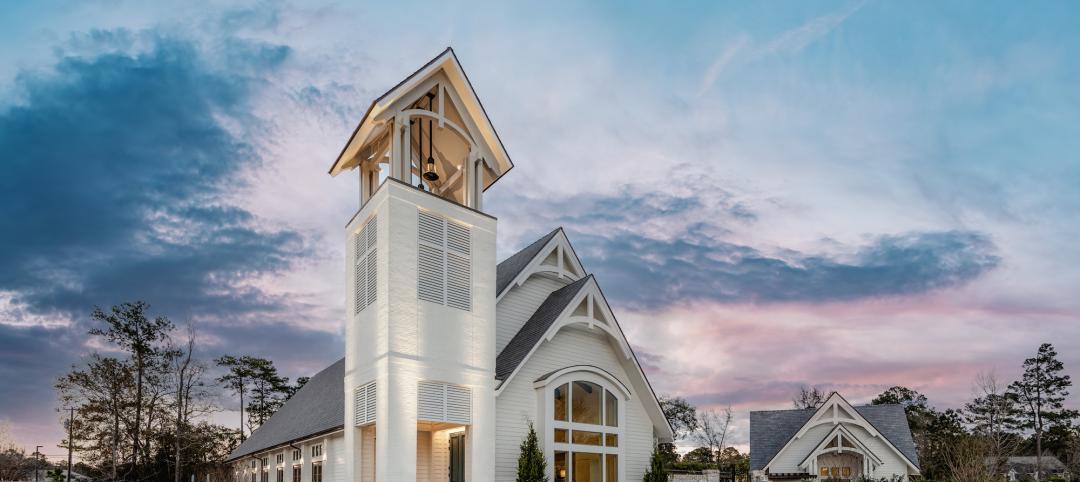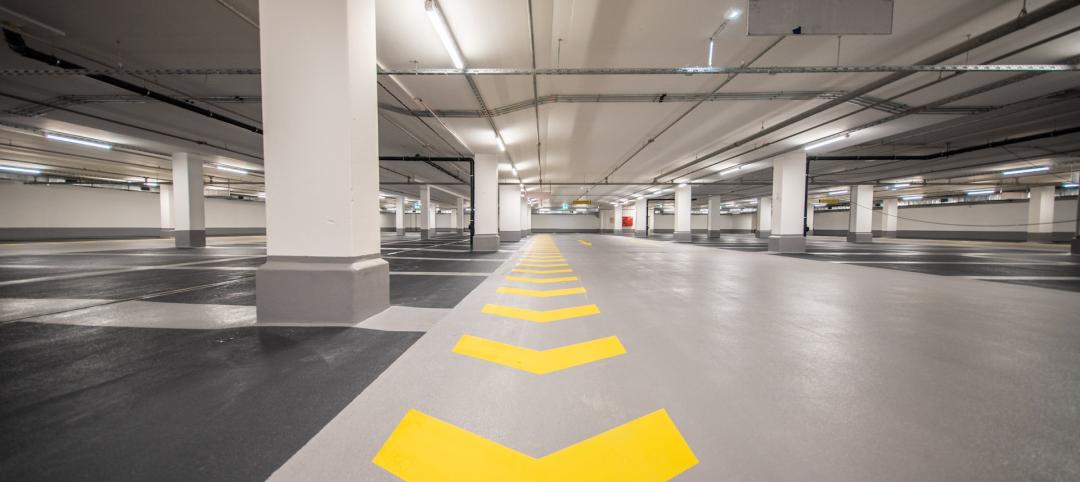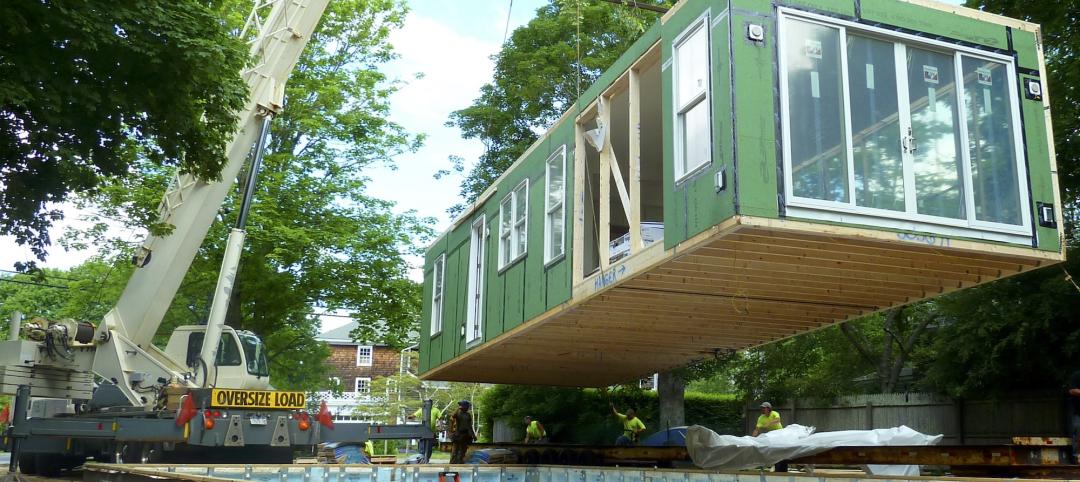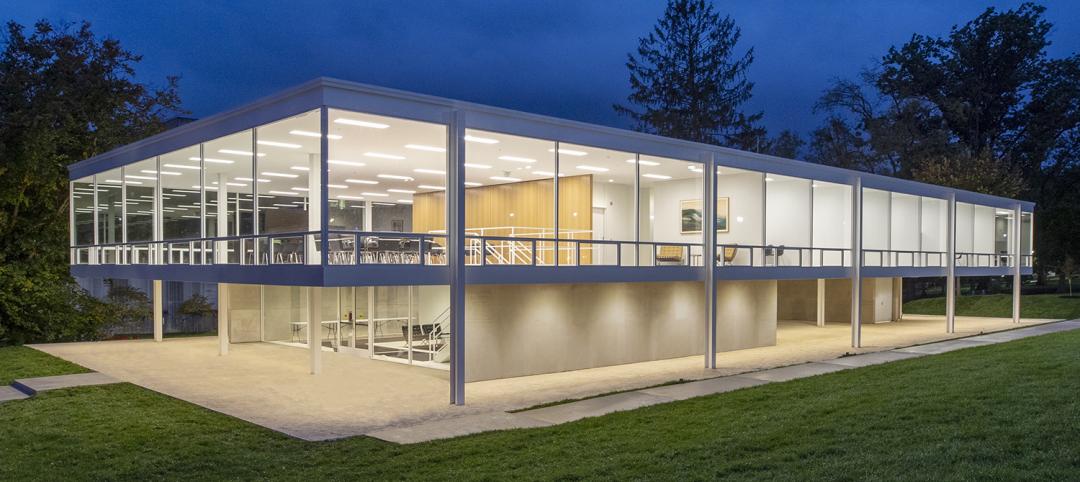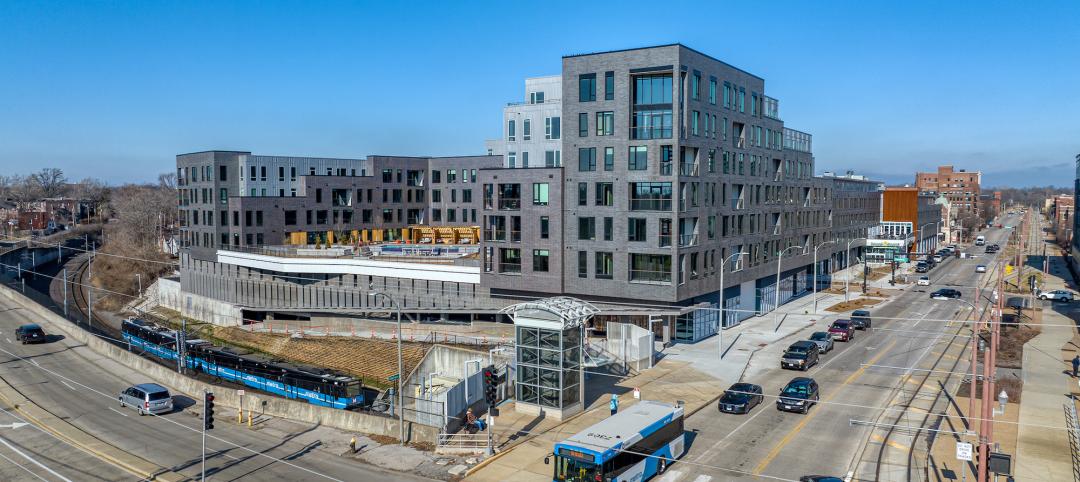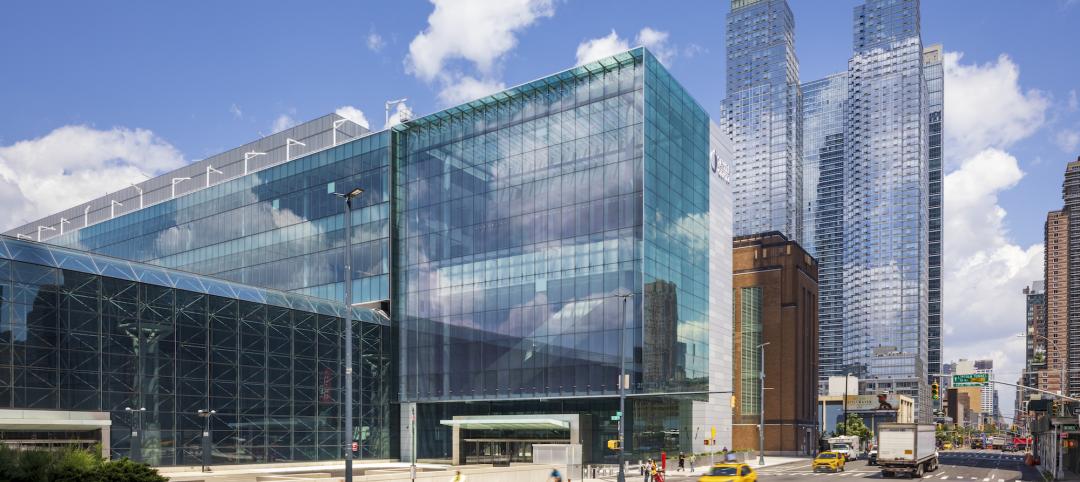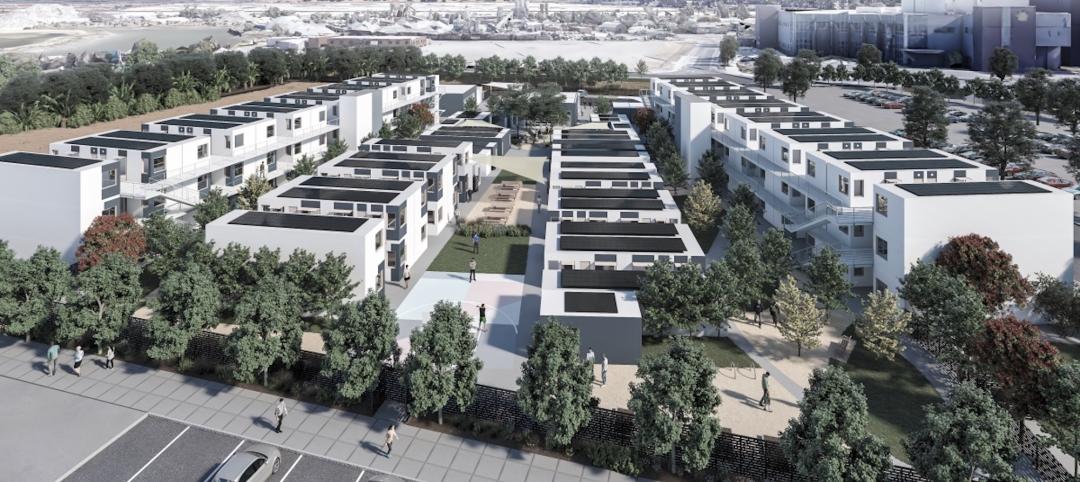A partnership between L&L Holding Co. and Lehman Brothers Holdings Inc. (LBHI) announced the selection of Foster + Partners, led by Pritzker Prize-winning architect Lord Norman Foster, to design an iconic 650,000-sf office tower to be constructed at 425 Park Avenue in the famed Plaza District of Manhattan. The firm will work with the partnership to create an enduring landmark that befits its exclusive location yet is also of its current time and place.
Foster + Partners was selected at the conclusion of an international architects competition, a six-month process involving many of the world’s most acclaimed architecture firms. In addition to Foster + Partners, the partnership selected Rogers, Stirk, Harbour + Partners (Lord Richard Rogers), OMA (Rem Koolhaas) and Zaha Hadid Architects to participate in the final, conceptual design phase of the competition over the recent summer.
L&L Holding Chairman and CEO David Levinson also announced that he and Lord Foster will make a presentation on the conceptual design during the Municipal Arts Society’s 3rd Annual Summit for New York City on Oct. 19. The two-day summit, which starts Oct. 18, will also feature an exhibit featuring the 425 Park Avenue design concepts that were presented by each of the four finalists in the competition.
“We are grateful to each of the firms for the thoughtfulness and creativity they demonstrated throughout the process,” said Levinson. “There is no doubt that each group was fully capable of helping us realize our vision of a 425 Park Avenue tower that redefines the modern office environment while also respecting and enhancing the timeless allure of the Plaza district.”
Levinson added, “We are looking forward to beginning a process in which we translate Foster’s brilliant concept into a modern tower which offers its inhabitants the most functional and environmentally sustainable work environment imaginable, while also addressing the public realm in a way that hasn’t been accomplished in many years.”
Located in the heart of New York’s famed Plaza District, 425 Park Avenue will be the first full-block office development on this historic stretch in nearly half a century. The tower will be situated along Park Avenue’s double-wide boulevard with its attractive green medians, modern art exhibits and broad sidewalks. The district is also recognized as an epicenter of architectural excellence, as exemplified by the nearby Seagram Building and Lever House, which are two of only five structures in New York City to have won AIA’s esteemed “25 Year Award.”
Foster + Partners views the project as an outstanding opportunity to contribute to the existing character of Park Avenue while also responding to the scale and datum of the boulevard and neighboring buildings. Clearly expressing the geometry of its structure, Foster + Partners’ conceptual design features a tapered steel-frame tower rising to meet three illuminated shear walls, adding to the vibrant New York City skyline. The conceptual design also calls for an elegant façade that seamlessly integrates with the innovative internal arrangement that allows for three gradated tiers of column-free floors.
Offering world-class sustainable office accommodation, Foster + Partners envisions a new tower that anticipates changing needs in the workplace with large, open spaces that encompass flexible use. Each of the three tiers – low, medium and high-rise – is defined by a landscaped terrace that would provide excellent amenity for tenants and offer panoramic views across Manhattan and Central Park. At street level, the conceptual design for 425 Park Avenue gives as much to the city as to the people that will work in it with the potential for a large civic plaza marked by significant works of art.
The conceptual design will serve as the framework for a two-year collaborative process with L&L Holding’s project team to create a fully formed architectural and construction plan for the 425 Park Avenue tower. L&L Holding anticipates the start of construction in 2015, with the new 425 Park Avenue tower to be completed by the end of 2017.
Related Stories
Giants 400 | Feb 6, 2023
2022 Religious Sector Giants: Top architecture, engineering, and construction firms in the U.S. religious facility construction sector
HOK, Parkhill, KPFF, Shawmut Design and Construction, and Wiss, Janney, Elstner head BD+C's rankings of the nation's largest religious facility sector architecture, engineering, and construction firms, as reported in the 2022 Giants 400 Report.
Giants 400 | Feb 6, 2023
2022 Justice Facility Sector Giants: Top architecture, engineering, and construction firms in the U.S. justice facility/public safety sector
Stantec, DLR Group, Turner Construction, STO Building Group, AECOM, and Dewberry top BD+C's rankings of the nation's largest architecture, engineering, and construction firms for justice facility/public safety buildings work, including correctional facilities, fire stations, jails, police stations, and prisons, as reported in the 2022 Giants 400 Report.
Giants 400 | Feb 6, 2023
2022 Parking Structure Giants: Top architecture, engineering, and construction firms in the U.S. parking structure sector
Choate Parking Consultants, Walker Consultants, Kimley-Horn, PCL, and Balfour Beatty top BD+C's rankings of the nation's largest parking structure sector architecture, engineering, and construction firms, as reported in the 2022 Giants 400 Report.
Market Data | Feb 6, 2023
Nonresidential construction spending dips 0.5% in December 2022
National nonresidential construction spending decreased by 0.5% in December, according to an Associated Builders and Contractors analysis of data published today by the U.S. Census Bureau. On a seasonally adjusted annualized basis, nonresidential spending totaled $943.5 billion for the month.
Giants 400 | Feb 3, 2023
Top Workplace/Interior Fitout Architecture, Engineering, and Construction Firms for 2022
Gensler, Interior Architects, AECOM, STO Building Group, and CBRE top the ranking of the nation's largest workplace/interior fitout architecture, engineering, and construction firms, as reported in Building Design+Construction's 2022 Giants 400 Report.
Multifamily Housing | Feb 3, 2023
HUD unveils report to help multifamily housing developers overcome barriers to offsite construction
The U.S. Department of Housing and Urban Development, in partnership with the National Institute of Building Sciences and MOD X, has released the Offsite Construction for Housing: Research Roadmap, a strategic report that presents the key knowledge gaps and research needs to overcome the barriers and challenges to offsite construction.
Steel Buildings | Feb 3, 2023
Top 10 structural steel building projects for 2023
A Mies van der Rohe-designed art and architecture school at Indiana University and Morphosis Architects' Orange County Museum of Art in Costa Mesa, Calif., are among 10 projects to win IDEAS² Awards from the American Institute of Steel Construction.
Multifamily Housing | Feb 2, 2023
St. Louis’s first transit-oriented multifamily development opens in historic Skinker DeBaliviere neighborhood
St. Louis’s first major transit-oriented, multi-family development recently opened with 287 apartments available for rent. The $71 million Expo at Forest Park project includes a network of pathways to accommodate many modes of transportation including ride share, the region’s Metro Transit system, a trolley line, pedestrian traffic, automobiles, and bike traffic on the 7-mile St. Vincent Greenway Trail.
Giants 400 | Feb 2, 2023
2022 Convention Center Sector Giants: Top architecture, engineering, and construction firms in the U.S. convention and conference facilities sector
Clark Group, EUA, KPFF, Populous, TVS, and Walter P Moore top BD+C's rankings of the nation's largest convention and conference facilities architecture, engineering, and construction firms, as reported in the 2022 Giants 400 Report.
Multifamily Housing | Feb 1, 2023
Step(1) housing: A new approach to sheltering unhoused people in Redwood City, Calif.
A novel solution to homelessness will open soon in Redwood City, Calif. The compact residential campus employs modular units to create individual sleeping units, most with private bathrooms. The 240 units of housing will be accompanied by shared services and community spaces. Instead of the congregate dorm-style shelters found in many U.S. cities, this approach gives each resident a private, lockable, conditioned sleeping space.



